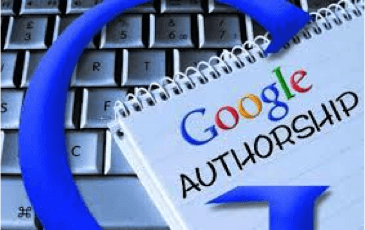Authorship has been a big topic in the SEO world for quite a while (and rightfully so). Authorship not only helps your entry jump off the page and seem more “human” to Google users, but it helps others find all of your work online easier, and it positions you as an authority in the eyes of the Google bots. Authorship is the future of search, so now is the time to get started building up your author rank and getting more involved in Google+.
For those who are unfamiliar with how authorship works or how to get started, you can learn more in this past SEJ article. The next step is getting more advanced and looking at what Google has to say about authorship and how to take full advantage.
Google Announces Advanced Authorship Tips
Google has written quite a bit about authorship in the past, but just last week Google made some announcements about authorship that are not generally discussed. Consider some of these tips when analyzing your authorship strategy and efforts at a more advanced level:
- Authorship should only be used when there is one author. It should not be used for multiple authors or for a page with multiple snippets of content.
Authorship should appear on pages where there is one author who wrote one piece of content. In some cases, companies have a page that lists articles found on many different websites or are a feed for lots of articles, and yet they still put one author on that page. One person probably created that page, but that doesn’t mean authorship should be used.
Authorship should also not be used if there are multiple authors on one page. If there is one piece of content but many people wrote that content, authorship probably shouldn’t be used. On that note, it is possible to just tag one author. It’s not really fair, but it’s up to you.
- Authorship (rel=author tag) should only be used for real people. Use the rel=publisher tag when showing business authorship.
Using some sort of persona or company mascot for authorship is not what Google intended. Authorship is about real authors and giving those real authors credit. Things get confusing when you try to use a fake person or you’re a company owner who wants total control over all the content written for your company. Give real authors credit and allow him/her to use his/her own Google+ profiles. This is what Google wants and this is what users want, so you should come out on top in the end if you follow this rule.
If you want to use the rel=publisher tag as opposed to the rel=author tag (which is what this article is discussing), that is an easy way to show business authorship. This means that a piece of content will be connected to a business Google+ page, so it’s a good way to keep things organized. You can learn more about the specifics of publisher markup here.
- If you have articles in different languages, all of those articles should link to the same Google+ profile.
Authorship has everything to do with that one particular author. If that author wrote three different articles, one in English, on in Spanish, and one in French, they should all still be linked to that same Google+ profile. Google made it clear in their announcement that creating multiple Google+ pages in different languages for one person is not necessary.
- Authorship is not for product description pages or property listings EVEN IF one particular employee customized the description.
A description for something like a produce review or property listing is not the type of information that Google wants authorship to portray (and the author should not, either). An author should have only well-written articles and opinion pieces connected with authorship. It needs to be all about that author and what that author can offer, not something as general as a description of a product.
Google ended this announcement by saying that you don’t have to participate in authorship. All you need to do is remove the authorship tag from the articles and you’re set to go. If this isn’t possible for some reason, just make your Google+ profile private.
So what does this mean for your company? Because these tips are coming straight from Google, it’s important to really pay attention and take them to heart. Some of the above suggestions are still easy to work around at this point, but Google will surely start changing this in the future. If they don’t want authorship to be connected with product listings, it’s only a matter of time before some sort of penalty is put into place. We’re not there yet, but it’s best to prepare while there is still plenty of time.
What are your thoughts on Google authorship? Do you find it hard to abide by some of these more advanced suggestions? Let us know your thoughts in the comments below.
Photo Credit: bluepolointeractive.com




